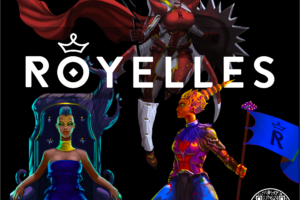
Amazon, Berkshire Hathaway, and JPMorgan Chase, three economic juggernauts, announced they’re teaming up to tackle healthcare, a sector of the economy that’s proven elusive for presidents and private-sector reform efforts alike.
Amazon CEO Jeff Bezos weighed in on healthcare costs, commenting that “reducing health care’s burden on the economy while improving outcomes for employees and their families would be worth the effort.”
No question, Bezos is right. But radical reform in the U.S. healthcare system might not come from these massive, centralized global players. Instead, the world’s newest transformative technology could hold the answers and affect stock prices across the board in one of the tallest pillars of the economy.
Blockchain in healthcare, blockchain everywhere?
A 2016 Deloitte study offered up that “Blockchain technology has the potential to transform health care, placing the patient at the center of the healthcare ecosystem and increasing the security, privacy, and interoperability of health data.”
Blockchain, which creates a decentralized, autonomous network of trust to share and record information, offers myriad benefits for both patients and care providers: a secure exchange of information without intermediaries, lower costs, secure patient identities, ease of sharing real-times updates across parties; smart contracts; and secure longitudinal health data for each patient.
As Bezos, Warren Buffett, and Jaime Diamond know, the healthcare market is massive, offering a significant opportunity for emerging companies to reduce costs, improve care, and deliver better outcomes for patients. Right now, healthcare in the United States comprises 17% of annual GDP with an aging population providing a consistent tailwind.
The Healthcare Information and Management Systems Society (HIMSS) says there is “massive untapped potential” to change the healthcare sector for the better through blockchain technology. For one, Blockchain tech can secure HIPAA-compliant data sharing across networks. A number of use cases have cropped up as a result. In a comment on the opportunity tech reporter Mike Butcher said illustratively that a blockchain record could “follow you around so you could avoid yet another dose of radiation because your record said you’d already had 50 head X-rays.” Moreover a raft of applications emerged between smart contracts, data tokenization, and blockchain combinations with AI and machine learning.
Blockchain smart contracts will automate transactions and reduce inefficiency,” says entrepreneur Adryenne Ashley. “Using smart contracts to track disease, cause and effect, treatment and results will be critical to learning and understanding how each patient responds.” Having that data automatically written to the blockchain eliminates delay in data analysis and creates a bridge between practitioners and researchers, leading to cures.
Blockchain companies with tokens will introduce new commerce and incentive systems. And combining blockchain technology with advancements in AI and machine learning will provide new insights and further improve care. In 2018, several new blockchain startups are launching across various areas in healthcare, representing some of the best applications of the technology to accomplish those goals.
Big Medicine taps into data
The fragmented, inaccessible nature of current electronic medical record systems alone millions. John Halamka, the chief information officer at Beth Israel Deaconess Medical Center in Boston, developed a secure-data exchange, MedRed, and advises another blockchain company, Simply Vital Health, as it builds a platform to streamline healthcare data management and reduce the costs of bundled payments. In the Harvard Business Review, Halamka wrote that blockchain protocol can “standardize secure data exchange in a less burdensome way than previous approaches.”
The rest of the healthcare industry is following Halamka’s lead. 16% of healthcare executives surveyed by IBM have “solid plans” to implement a commercial blockchain solution this year, with 56% planning to do so by 2020.
Supply chain
IBM, one of the corporate behemoths investing in blockchain technology, sees supply chain management as one of the key areas where blockchain can make an immediate improvement. The technology will enable “more secure and transparent monitoring of transactions” which will reduce time, cost, and human error.
Gem, one of the early companies to watch in this space, has a supply chain management software platform that “boosts the ‘collective intelligence,’ or Data IQ, from previously siloed data” allowing organizations to increase efficiency, accuracy, and speed of supply chain transactions. ShipChain, too, backed by DHL’s former CEO, launched its platform to tidy up the fractured transportation and shipping industry including medical freight and hazardous materials.
Tackling fraud
A favorite target among the federal enforcement crowd–myself included–Blockchain technology could also tackle the massive amount of fraud in the healthcare market. A 2012 study by the Centres for Medicare and Medicaid Services and the RAND Corporation estimated that fraud accounted for $98 billion of total Medicare and Medicaid spending and up to $272 billion across the entire U.S. healthcare system. Through secure, immutable records, blockchain ledgers could be one of the best tools to cut down of fraud, from false reimbursements to theft of patient records to gain access to prescription drugs.
What’s in store for 2018
The story of 2017 was the meteoric rise of cryptocurrencies with plenty of bearishness coming from marquee investors. That said even after a big correction, the biggest cryptocurrencies are up thousands of percentage points over the last twelve months. The bigger story is unfolding away from volatility, as blockchain companies look to solve big problems in healthcare. Rest assured that from an investment perspective the likes of Buffett and Bezos will take notice.
















Definitely imagine that which you said. Your favourite justification seemed to be
on the net the easiest thing to take into account of. I say to you, I definitely
get irked at the same time as folks consider worries that they just
don’t recognize about. You controlled to hit the nail upon the top as well as outlined out the whole thing without having
side effect , people can take a signal. Will probably be again to get more.
Thank you
That is a great tip particularly to those new to the blogosphere.
Simple but very accurate information… Thanks for sharing this one.
A must read post!
I know this web site gives quality based articles and other material, is there any other site
which presents such data in quality?